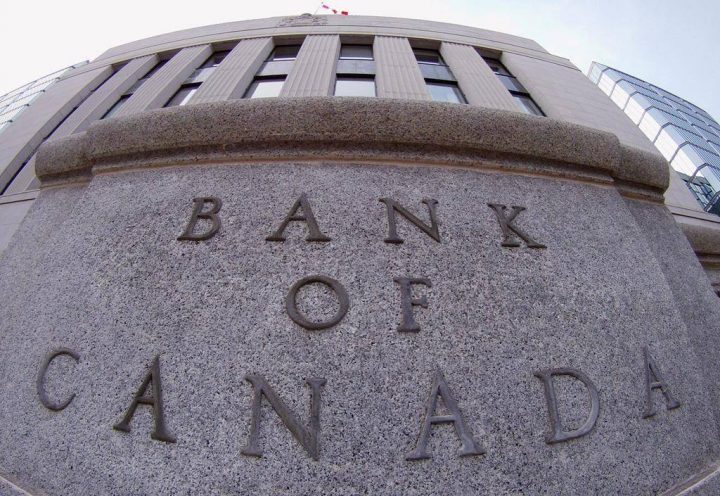OTTAWA — The Bank of Canada kept its key interest rate on hold where it has been for more than a year as it said Wednesday that ongoing trade conflicts and related uncertainty continue to weigh on the global economy.

The central bank’s overnight rate target has been set at 1.75 per cent since October of last year.
In its rate announcement, the Bank of Canada said there is early evidence that the global economy is stabilizing and growth is still expected to edge higher over the next couple of years.
“Financial markets have been supported by central bank actions and waning recession concerns, while being buffeted by news on the trade front,” the bank said.
“Indeed, ongoing trade conflicts and related uncertainty are still weighing on global economic activity, and remain the biggest source of risk to the outlook.”

Stock markets tumbled Tuesday after U.S. President Donald Trump said he had “no deadline” to end a 16-month trade war with China that has hurt the global economy and downplayed the likelihood of reaching a deal before the U.S. elections next year.

Get weekly money news
New U.S. tariffs are set to kick in on many Chinese-made items, including smartphones and toys, on Dec. 15 in addition to taxes already being imposed on hundreds of billions of dollars worth of Chinese goods imported by the U.S.
Meanwhile, a resilient Canadian economy has allowed the Bank of Canada to keep interest rates on hold even as many of its international peers have moved to ease monetary policy amid concerns about the global economy.
Economic growth in Canada slowed in the third quarter to an annual pace of 1.3 per cent, in line with the Bank of Canada’s forecast in October. Consumer spending and housing helped support growth in the quarter, however the central bank also noted that investment spending came in stronger than expected.
Statistics Canada reported last week that growth in the third quarter came as business investment rose 2.6 per cent, its fastest pace since the fourth quarter of 2017.
“The bank will be assessing the extent to which this points to renewed momentum in investment,” the Bank of Canada said.

“Future interest rate decisions will be guided by the bank’s continuing assessment of the adverse impact of trade conflicts against the sources of resilience in the Canadian economy — notably consumer spending and housing activity.”
Changes in the Bank of Canada’s overnight rate target affect the prime rates at the big banks and in turn the rates Canadians pay for variable-rate mortgages and other floating-rate loans.
The Bank of Canada’s next interest rate decision is set for Jan. 22, when it will also update its outlook for the economy and inflation as part of its quarterly monetary policy report.







Comments